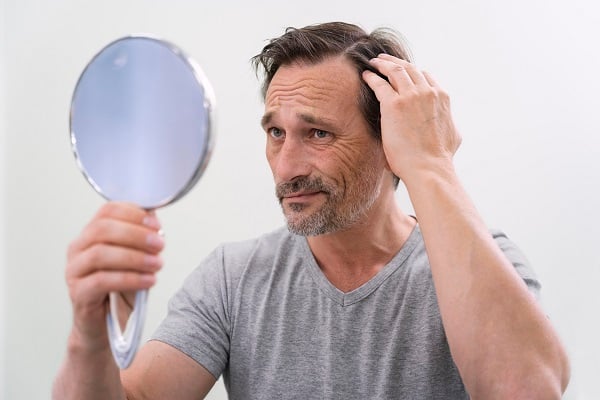Dandruff is one of the most common scalp and skin conditions nowadays. It can easily be controlled with proper care and the right treatment method.
What is Dandruff? What Are the Symptoms of Dandruff?
The shortest answer to the question "What is dandruff?" is the shedding of skin flakes due to scalp stretching. The symptoms are generally similar in everyone and can suddenly appear even in healthy hair. When asking what dandruff is, it's crucial not to confuse it with eczema. Therefore, it is important to ask what the symptoms of dandruff are and examine their answers. Let's take a look at the symptoms of dandruff:
- White, dry, flaky skin flakes,
- Itching of the scalp, not always, but sometimes resulting in sores or irritations due to scratching,
- The scalp being abnormally sensitive and reddened,
- Unhealthy-looking hair and rapid dryness
are among the observed symptoms of dandruff.
What Causes Dandruff?
Several different factors play a role in individuals experiencing dandruff. Some of the most well-known factors among these are listed below:
- Age is the primary factor. This is because dandruff tends to appear mainly during adolescence and sometimes decreases over the years.
- Frequently changing shampoos or applying medications to the hair is one of the most common causes of dandruff formation.
- The uncontrolled proliferation of a fungal infection called Malassezia Furfur on the skin is among the causes of dandruff. This is considered a rare condition but is quite common nowadays.
- Another common cause of dandruff is an allergy. Sometimes our skin may react allergically to the shampoos, soaps, hair creams, and other chemical content. Dandruff is one of these allergic reactions.
- Hormonal imbalances can affect the skin, leading to conditions like dandruff.
- Although not a direct cause of dandruff, metabolic disorders associated with lipids are a factor directly affecting the severity and amount of dandruff on the scalp.
- Individuals with oilier skin and hair tend to experience dandruff more than those with normal skin types.
- Deficiencies in B vitamins group, Zinc, and Iron in the body can lead to skin dryness, resulting in dandruff.
- Our hair and scalp interact with numerous microorganisms and dust in daily life. Therefore, paying attention to hair hygiene is essential. Otherwise, not only dandruff but various skin diseases can also emerge.
While dandruff is often perceived as a distressing condition visually, the reasons for its occurrence are linked to the aforementioned factors.
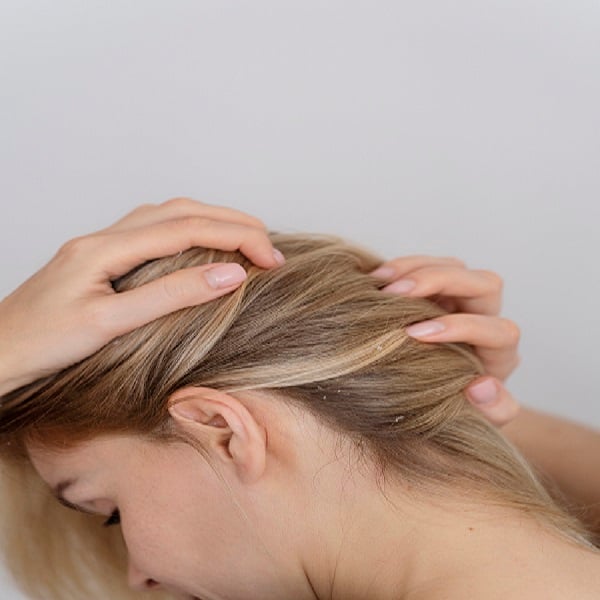
How to Get Rid of Dandruff in Hair?
There are various treatment methods available to eliminate dandruff from the hair. While these methods can be effective when used individually, people experiencing severe dandruff issues might require multiple methods. Although not always, dandruff can sometimes be an indicator of underlying illnesses, so it's beneficial to consult a dermatologist. Besides, treating dandruff through proper hair hygiene, healthy nutrition, and, if necessary, vitamin supplements while avoiding stress is possible.
How to Get Rid of Dandruff in Beard?
The causes of dandruff formation in the beard are similar to those for hair dandruff. Especially conditions like Psoriasis, Eczema, or Fungal infections can trigger it. There are several practices to eliminate dandruff formation in the beard, such as:
1. Regularly washing and keeping the beard clean,
2. Providing regular care for the beard,
3. Properly drying the beard after washing,
4. Regularly brushing or combing the beard,
5. Using special serums or natural oils designed for beards.
If all these steps are applied and no results are achieved, it's essential to consult a dermatologist.
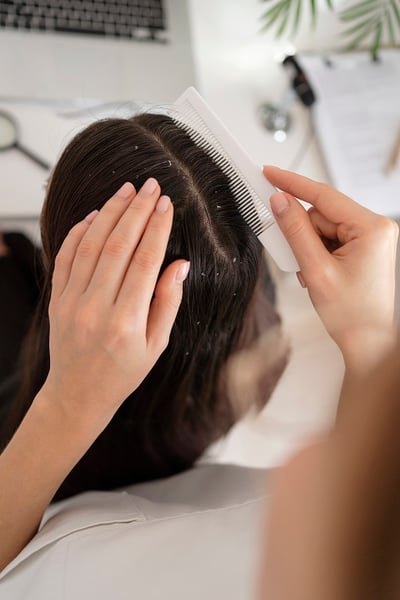
How to Get Rid of Dandruff on the Face?
One of the biggest misconceptions is confusing dandruff and Seborrheic Dermatitis on the face. Dandruff only occurs on areas like the eyebrows, beard, mustache, and scalp. Dandruff-like flaking observed on the face is not actually dandruff; it is a condition of flaky shedding of the facial skin caused by soap allergies, Psoriasis, Seborrheic Dermatitis, or excessive skin dryness. Despite its resemblance to dandruff in appearance, when such flaking is observed on the face, it should not be considered as facial dandruff; instead, it should be consulted with a dermatologist.
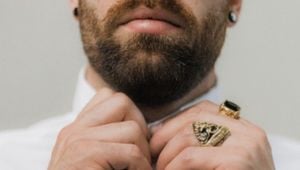
How to Get Rid of Dandruff in Men?
Before asking how to get rid of dandruff in men, it is necessary to look at the causes of dandruff formation in men. Men tend to sweat more than women, leading to more moistened scalp skin and increased susceptibility to dandruff. Improperly used products containing heavy chemicals, hormonal imbalances, various skin diseases can also cause dandruff in men. Properly washing hair, using the right hair products, avoiding stress, and paying attention to nutrition are natural ways to eliminate dandruff in men. If these methods do not yield results, consulting a dermatologist is necessary.
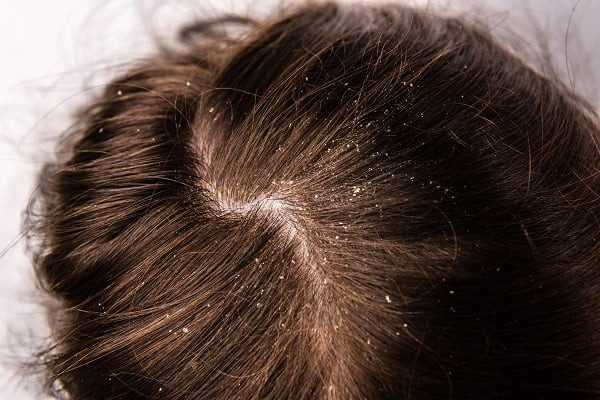
How to Get Rid of Dandruff in Women?
If we were to ask how to get rid of dandruff in women, there is no treatment method specifically distinguishing between men and women. Since various underlying reasons or conditions may cause each person to experience dandruff, especially for severe and excessive dandruff problems, seeking treatment from specialized dermatologists according to the individual and the situation is recommended. Additionally, like in men, for women to get rid of dandruff, paying attention to healthy nutrition, proper care, and hygiene, using the right products is sufficient for dandruff treatment.
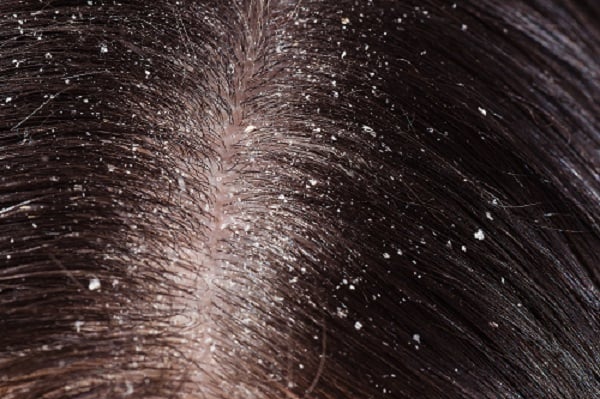
How to Get Rid of Itchy Dandruff?
Another commonly believed misconception is that dandruff causes itching. Except for conditions like Psoriasis, Eczema, or Shingles that cause itching on the scalp, dandruff alone does not cause itching. However, if existing dandruff is scratched by hand or brushed vigorously, it can lead to irritation and sores, which can result in itching. In any illness or with dandruff alone, it is essential not to pick or scratch and handle the area gently. All necessary information for dandruff treatment and recommendations for the sensitivity required for the area with dandruff can be obtained from specialized dermatologists.
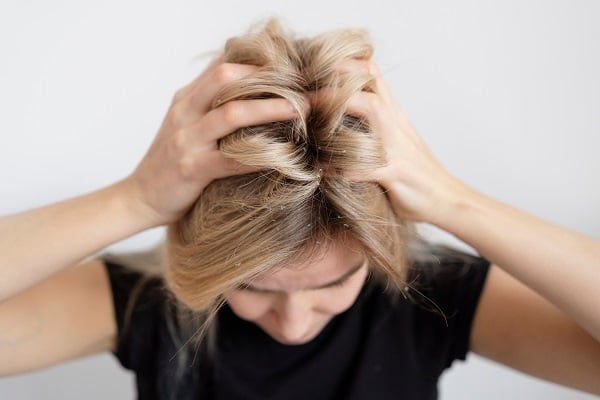
Does Dandruff Occur After Hair Transplantation?
Dandruff occurrence after hair transplantation is often seen in individuals who have undergone hair transplant procedures, and it is entirely normal. It can usually be observed due to the increased dead skin on the scalp after the operation. Individuals noticing dandruff after hair transplantation should consult the doctor who performed the transplant and obtain support such as shampoos that prevent dandruff formation. General anti-dandruff shampoos or products available in markets or stores should not be used after such a procedure. Shampoos or medications to be used should be specially prescribed by the doctor.
Regarding dandruff occurrence after hair transplantation, it is essential not to take any action unless the flaking is excessive. After the transplantation process, as the newly implanted roots settle in the head, a certain amount of dandruff formation is quite normal and expected. Therefore, the dandruff formation due to this reason is actually considered beneficial.
